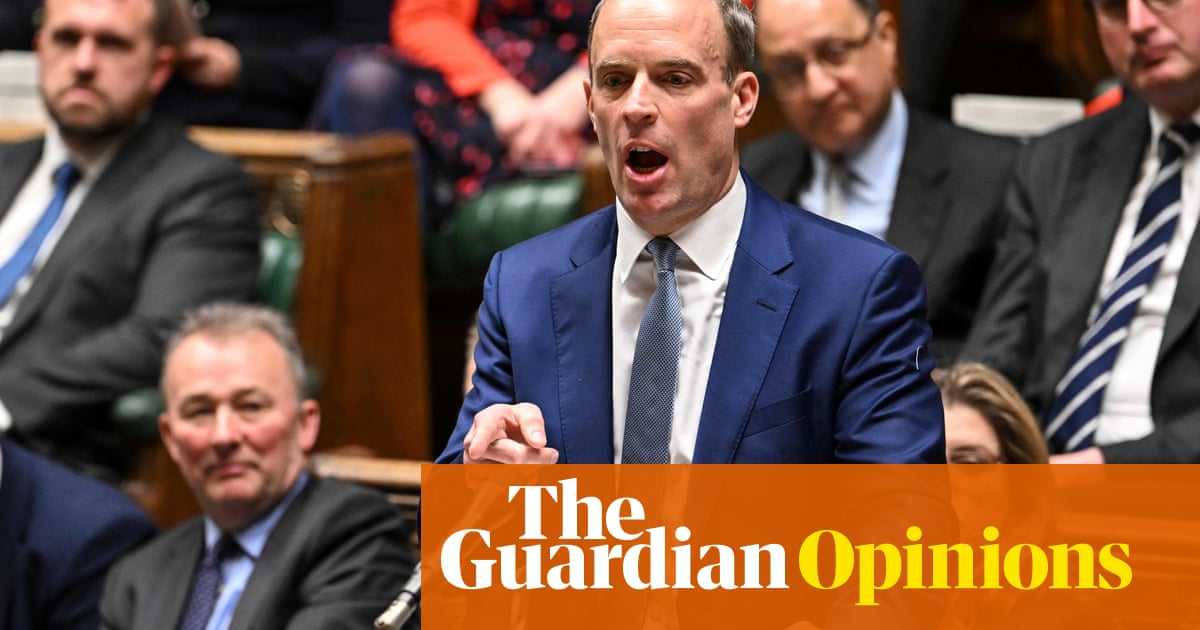
With Boris Johnson in intensive care, Dominic Raab, the foreign secretary, has been asked to step up “where necessary” and run the country during the biggest public health crisis in a generation.
He will be expected from today to chair Cobra and cabinet meetings as the government makes crucial decisions related to the coronavirus, including whether and when to alter restrictions on movement.
Raab, 46, who has twice tested negative for the virus, is Johnson’s “designated survivor”, and takes on prime ministerial responsibilities now Johnson has become too ill to remain in charge of the government.
How long he remains in that position will depend on Johnson’s health and his prospects of returning to cabinet, according to a former senior civil servant.
Lord Kerslake, the former head of the civil service, said: “The government and the cabinet secretary have clearly identified Raab as the first minister but that was done some time back without any notion that it would come to this.
“Raab will step into the key functions such as chairing Cobra meetings and chairing cabinet. There will also have been general plans that would have been refined over the last few days since the prime minister’s illness became clear.”
As the UK is a parliamentary democracy, there is no need, under the UK’s unwritten constitution, for an election in order for Raab to assume prime ministerial powers. However, political pressure could eventually lead to one.
If the prime minister remains incapacitated for some time, questions will be raised about whether Raab has the authority to continue, Kerslake told the Guardian, and the cabinet may intervene.
“The question will be to what extent can Raab carry the authority that Boris Johnson had, given that Boris led the government to a general election victory. I think a lot now depends on how quickly the PM recovers.
“If he doesn’t recover quickly, the cabinet would take a view on who would be prime minister. But if the prime minister was unable to continue, the Conservative party may have to choose a new leader,” he said.
“The challenge is that there are big questions to be made now. When and how do we leave the lockdown? Do we intensify it in the short term? Are we going to deliver the increased levels of testing and PPE [personal protection equipment] needed? Do we need to do more to protect those caught up in the economic fallout of the lockdown, such as the younger and the lower-paid?”
Last month, the prime minister’s spokesman said if Johnson was unwell and unable to work, Raab, as the first secretary of state, would stand in. Downing Street is said to have drawn up plans to ensure the continuation of government in all circumstances but details have not been divulged publicly.
Ian Duncan Smith, the former Conservative party leader and a friend of the prime minister, said he had “all the confidence” in Raab as he was surrounded by cabinet ministers who knew the processes around the prime minister. He said contingencies for this situation were well planned.
“In terms of the government we shouldn’t have any concerns at all. It has been known for some considerable time that the prime minister appointed Dominic Raab as first secretary. He is more than capable of fulfilling this role and he has great experience in government,” he told BBC News.
“And he would have been brought up to speed on all the key processes that go around the prime minister since he became ill because they would have been planning for this and just in case this happened.
“All the other cabinet ministers, some very senior like Michael Gove who understand how this works, they’ve all got important jobs to do … but what they will now have to do is look to Dominic Raab for that final principal decision making process whilst the prime minister is unable to take that role.”












